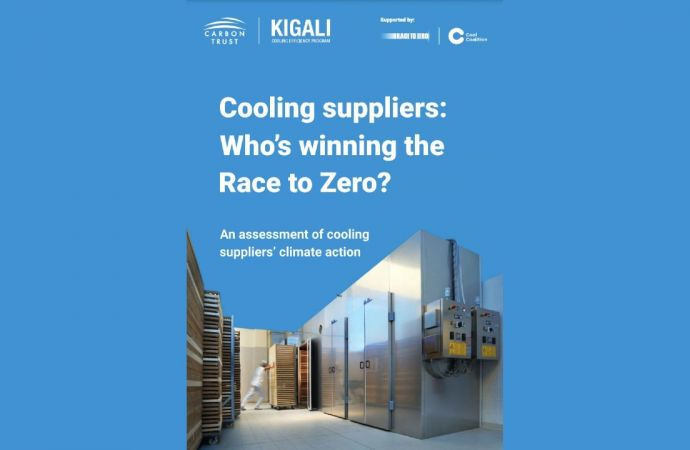The US Environmental Protection Agency (EPA) is amending the regulations regarding the Venting Prohibition for Specific Refrigerant Substitutes, exempting SNAP approved hydrocarbons substitutes. Following an evaluation of comments to a public consultation in 2013, the EPA has decided to lift the venting prohibition for isobutane (R600a), R441A and propane (R290) used as substitutes in domestic and stand-alone retail refrigeration.

The EPA is amending the regulations promulgated as part of the National Recycling and Emission Reduction Program under section 608 of the Clean Air Act. The amendment will exempt from the venting prohibition hydrocarbons listed as “acceptable” or “acceptable under use conditions” under the Significant New Alternatives Program (SNAP), deemed not to be a threat to the environment.
SNAP approved hydrocarbon refrigerants no threat to the environment
According to the final rule, the hydrocarbon refrigerant substitutes are exempt “on the basis of current evidence their venting, release or disposal does not pose a threat to the environment”.
In addition to their very low global warming potential (GWP) and zero ozone depleting potential (ODP), hydrocarbons have a very short atmospheric lifetime (7-8 days) and after release they break down into naturally occurring compounds.
What is more, the use of hydrocarbons (HC’s) can lead to energy savings of 12 to 55% as compared to units using HFC refrigerants. The use of HC’s therefore contributes to a much greater reduction in greenhouse gas emissions than the amount that might be released during maintenance, servicing or repair.
Other exemptions exist for the following:
- Hydrocarbons in the processing of hydrocarbons
- Ammonia in commercial refrigeration, absorption chillers
- CO2 in any application
- Water in any application
Recovery of hydrocarbon refrigerants presents no clear benefit at this time
The final rule concludes that at this time, there are no applicable standards in the U.S. for certification of recovery equipment designed to handle these three hydrocarbon refrigerant substitutes. What is more, EPA is not creating a recovery requirement at this time, as it is not clear if it would be safer, economically practical or environmentally beneficial to require the use of recovery equipment.
Background
Section 608 of the US Clean Air Act requires the EPA to establish regulations governing the use and disposal of ozone depleting substances (ODS) used as refrigerants and prohibits any person from knowingly venting, releasing or disposing of such ODS. This prohibition applies to ODS substitutes, such as hydrofluorocarbons (HFCs) and natural refrigerants.
Following the 2011 EPA SNAP ruling that found the following three hydrocarbons acceptable in domestic refrigeration and stand-alone equipment, the EPA looked at whether or not it was appropriate to take action to lift the venting prohibition affecting:
- Isobutane (R600a) and R441A, which were listed as acceptable, subject to use conditions, as refrigerant substitutes in household refrigerators, freezers, and combination refrigerators and freezers, and
- Propane (R290), which was listed as acceptable, subject to use conditions, as a refrigerant substitute in stand-alone retail food refrigerators and freezers.
The US EPA is also continuously evaluating substitute alternatives under the Significant New Alternative Policy (SNAP) Program and now has 15-20 active submissions under review.
Click here to view the article LIVE REACTIONS: to US EPA hydrocarbon exemption from venting prohibition
Click here to view the article LIVE REACTIONS: to US EPA hydrocarbon exemption from venting prohibition
MORE INFORMATION
Related stories



